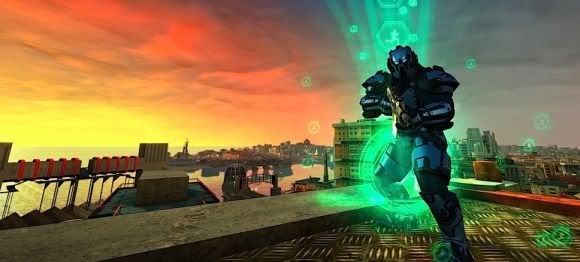I was one of the minority who enjoyed Brutal Legend for what it was rather than hating it for failing to be what people had expected. Perhaps it was the soundtrack or the way it recalled the superb-yet-equally-flawed Sacrifice in its genre mashup of avatar-led, real-time strategy, but I wanted to see everything Brutal Legend had to offer.

Yet today, the very thought of putting the disc in the drive is repellent. I burned myself out; my memories of the game corrupted through a single-minded pursuit of over-exhaustive achievements.
There are two kinds of secrets rife in gaming: those which feel naturally occurring and those which have been carefully and painstakingly hidden in every corner of the world, every crack and crevice…where only the most ardent players would think to look. Many games have their own implementation of this idea: Grand Theft Auto 4's pigeons, Prince of Persia's light orbs, Assassin's Creed's seemingly interchangeable flags and feathers, and Brutal Legend's dragon statues.
There's certainly an argument to be made for developers hiding cleverly concealed secrets around game worlds: It can be a way of rewarding your most hardened fans with bonus content at very little additional development cost. Half-Life 2's hidden lambda locations are a good example of this — often drawing your attention to the other easter eggs Valve have hidden around the environments for your amusement.
But I would argue that for a large proportion of a game's audience, tying the obsessive collection of all of these secrets to an achievement threatens to subsume the fun down to a rote "search every corner" approach. After all, when you're looking for 100-plus items, randomly wandering around the game world isn't going to do any good. Only an ordered, methodical approach will suffice, and that's not fun. That's work.

The alternative, which most players will eventually fall back on, is to admit defeat and rely on a FAQ guide; however, with most of these games having no means to track which secrets have already been encountered in the course of natural play (especially in modern, open-world games), the experience again becomes an extensive exercise in ticking boxes.
To fill a game with a variety of collectibles is no crime and can genuinely enhance the gaming experience. I certainly wouldn't have had such fun with Crackdown if not for the glimmering agility orbs perched on every building top. But to challenge a naturally obsessive demographic with collecting every one of over a hundred hidden objects is a dangerous ploy; at what point does the player's perception change from having fun to performing dull, repetitive work?
And when "work" is the lasting memory of a game — driving 'round in circles looking for that damned, last, dragon statue; wanting to go to sleep yet driven by a compulsion to get that empty achievement; and wishing to not have entirely wasted the past three hours of FAQ-drudging — who's going to want a sequel?
Originally posted at Generation Minus One, the webcomic of last-gen gaming.
VentureBeat's mission is to be a digital town square for technical decision-makers to gain knowledge about transformative enterprise technology and transact. Learn More
